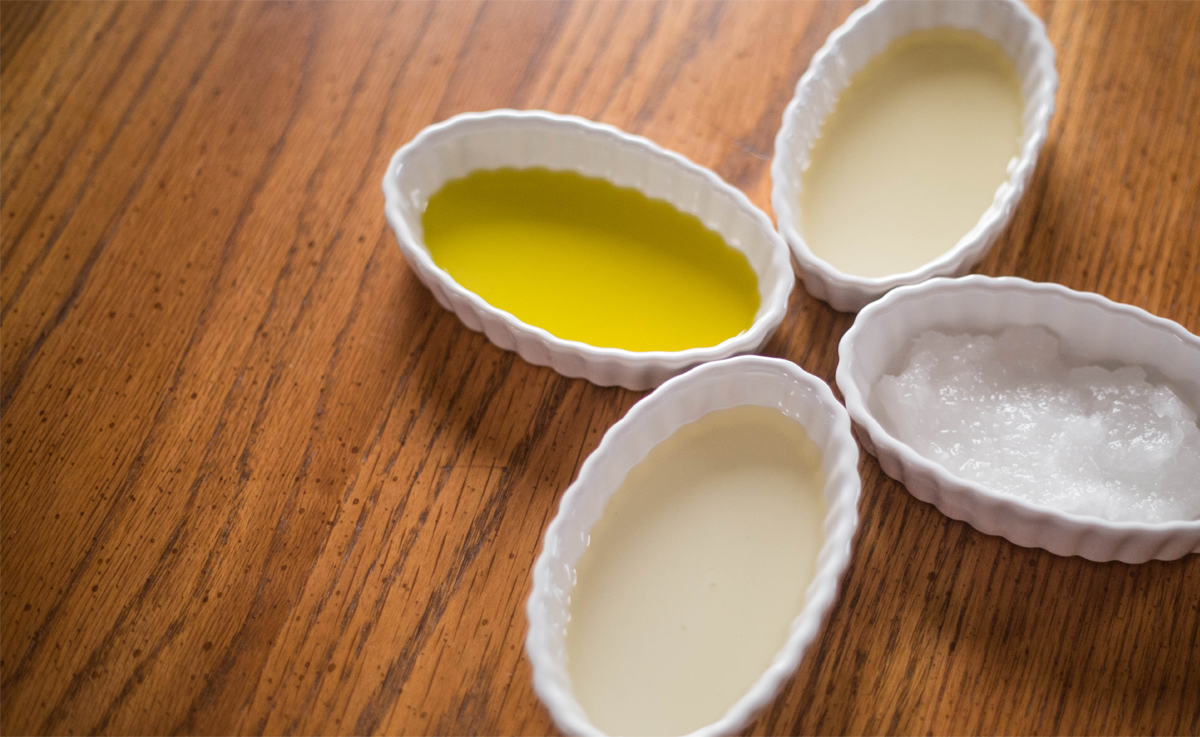
 By LeeAnn Bond
By LeeAnn Bond
You’re walking down the baking aisle in the store and see shelf upon shelf of different oils. How do you know which oil you should buy? Do you go for the one in the fancy bottle? Do you choose the same oil your mother cooked with for her whole life? Do you splurge on the one imported from Italy? What is the difference, really?
When it comes to picking out the right oil for cooking, the task can seem overwhelming. Let’s take a look at some of the differences between the various cooking oils and which are best suited for different types of cooking, as well as which ones are better for your health.
Heat: An oil’s smoke point is the temperature at which it starts smoking. This can lead to bitter flavors and is not desirable for cooking. Some oils have higher smoke points than others and are better for frying or stir-frying. More refined oils can tolerate higher temperatures. Other oils with low smoke points are better suited for dressings and dips.
Flavor: Just as peanuts have a distinctly different flavor from coconuts, their respective oils add their own unique flavor to dishes. If you don’t want the oil to distract from the other flavors in your dish, a more neutral-flavored oil would be best.
Health: When categorizing oils as “healthier” versus “less healthy,” divide fats into two broad categories: saturated and unsaturated fats. These labels describe physical characteristics that give fats different properties. Saturated fats tend to be solid at room temperature. Most often we think of animal fats, such as butter and lard, but palm oil and coconut oil are also very high in saturated fat. These negatively impact cholesterol and heart health. Unsaturated fats tend to be liquid at room temperature. These include most of our plant-based oils. These oils have varying amounts and types of beneficial fats, such as omega-3, omega-6, omega-9, monounsaturated, and polyunsaturated fats. These fats are better for heart health and affect “good” and “bad” cholesterol in beneficial ways.
Coconut Oil: Coconut oil often is a preferred vegan substitution for butter or lard and adds a sweet, nutty flavor. High in saturated fats, it is not the heart-healthy choice compared with many other oils; however, it does contain medium chain triglycerides (MCT). MCT oils are easier to digest, which benefits those who have health issues affecting fat absorption.
Olive Oil: High in monounsaturated fats, olive oil helps lower bad cholesterol (LDL) and raise good cholesterol (HDL). Olive oil has a more neutral flavor and is typically used more for cooking. Extra virgin olive oil has a lower smoke point than olive oil and has a more distinct flavor, making it a better choice for dressings.
Canola Oil: A versatile oil for cooking and baking, it has a light flavor. It is a healthy oil rich in mono- and polyunsaturated fats and also includes omega-3 fatty acids. A good all-purpose oil for cooking.
Soybean Oil: Often seen in vegetable oil blends, soybean oil has polyunsaturated fats as well as some omega-3 fatty acids. It is good for general light cooking but does not hold up under high temperatures, such as when frying.
Grapeseed Oil: Rich in polyunsaturated fatty acids, grapeseed oil is a good choice for heart health. It is a versatile oil, holding up better in heat than some oils, but also works well for dressings and dips.
Flaxseed and Walnut Oils: These oils are often used as plant sources of omega-3 fatty acids for those who do not consume fish. Neither oil holds up well under heat. They are better utilized in dressings or dips, which best highlight their unique flavors.
Fats are an essential part of our diet. They help us to absorb fat-soluble vitamins and supply essential nutrients. However, they still are a concentrated source of calories and should be consumed in moderation. Get the most out of your calories by choosing more unsaturated fats, and choosing saturated fats more sparingly.
LeeAnn Bond is a registered dietitian who works with individuals diagnosed with cancer to improve their nutrition. LeeAnn believes that nutrition therapy is indispensable to the treatment of cancer, not optional.
LeeAnn has been a member of the HonorHealth network since 2009. She holds a Bachelor’s Degree in dietetics from Brigham Young University and a Master’s Degree in nutrition from Arizona State University.
For more articles and upcoming events, visit us online at GreenLivingAZ.com





